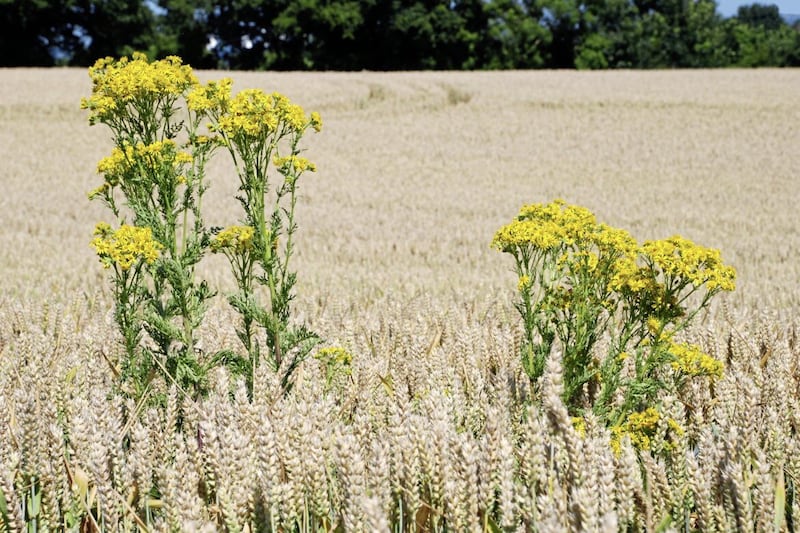LAST week a Trócaire team working in an Internally Displaced Persons camp near Luuq town in Gedo Region, southern Somalia, shared the saddest of stories.
They came across a large family who had walked with no food for 20 days from their village in search of support. They were desperate, with drought causing their crops to fail and their treasured herd of goats to die.
They had no choice but to leave home with their children in search of help. They knew they would not survive if they stayed.
The father of the family, Ibrahim Yarow (49), told our team how one of their nine children, three-year-old Feisal, died on the journey, weak and ill from hunger.
"Her life left her in our first week travelling. We had to bury her on the roadside and continue our journey. We had no choice. I had to save the rest of my family," the heartbroken father said.
These stories are, horrifically, all too common these days in Gedo and Somalia, which is in the grip of a catastrophic hunger crisis.
People, especially children, are dying on a daily basis as four consecutive years of drought threatens the lives of millions. It is estimated one person is likely to be dying of hunger every 48 seconds in drought-ravaged Ethiopia, Kenya and Somalia.
The number of people experiencing extreme hunger in these countries has more than doubled since last year - from over 10 million to more than 23 million.
The United Nations has warned that rising global food insecurity, accelerated by the war in Ukraine, is putting 750,000 people across five countries in East Africa, including Ethiopia, Somalia and South Sudan, at immediate risk of "starvation or death".
The UN also estimates that 1.5 million Somali children under the age of five will face acute malnutrition throughout this year, and warns that 350,000 may die in the coming months unless action is taken.
Last week the President of Ireland, Michael D. Higgins, joined those around the world raising awareness of the hunger crisis. He recalled travelling to Kenya and Somalia 30 years ago as a Labour Party TD with the late Sally O'Neill, a Tyrone woman and Trócaire stalwart, and seeing at first-hand the devastating impact famine was having on a highly vulnerable population.
In a moving article, he wrote that the response of the international community at the time to that terrible situation was "never again". But the international community made the same pledge a decade ago when the 2011 famine in Somalia claimed the lives of more than 260,000 people, half of them children under five.
The fact that we are once again facing into a famine is nothing short of an absolute disgrace.
For 30 years, Trócaire has been running the entire health services in Gedo, a region slightly bigger than the island of Ireland. We could not continue this work without the generous support of the people across Northern Ireland who have always stepped up when the need is greatest.
Starvation is a political failure, and we are facing the potential deaths of hundreds of thousands of people, especially children, despite repeated warnings from the humanitarian community.
The escalating climate crisis has driven the Horn of Africa into its fourth successive dry rainy season. Conflict and the economic impact of Covid-19 has added to the crisis, leaving lives in the region hanging in the balance.
This crisis is now being exacerbated by a global food shortage triggered by the Russian invasion of Ukraine. East Africa imports 90 per cent of its wheat, a staple food for most people in the region, from Ukraine and Russia.
Disruptions in grain supply, in addition to soaring prices of oil and fertilisers, are driving regional food prices to an all-time high. In Somalia alone, the prices for staple grains are more than double those of last year.
The reality is that the most vulnerable communities who are least responsible for the climate crisis are being hardest hit. Rich and industrialised countries have contributed around 92 per cent of excess historical carbon emissions, and 37 per cent of current emissions, whereas Africa's current emissions stand at just 4 per cent. The collective carbon emissions of Somalia, Ethiopia and Kenya are 0.1 per cent of the global total.
The world urgently needs a renewed urgent effort to help prevent the deaths of millions of vulnerable and marginalised people. This involves a two-pronged approach.
First and foremost, as a matter of extreme urgency, the international community needs to make the funds required available to stave off a pending humanitarian disaster, and to get immediate aid to people who are facing famine in parts of the Horn of Africa.
The UN estimates that humanitarian funding of US$4.4bn is required to provide life-saving assistance and protection in the region. Only a tiny percentage of this funding has been committed. This crisis is drastically underfunded.
Secondly, the international community must ensure that commitments on climate change and sustainable development are turned into implementable policies and actions without delay.
What is required is a robust regulatory framework which protects our fragile and threatened environment, and which respects the right of small landholders to remain on their land and retain access to water sources. The international community must also honour its obligations to climate change adaptation.
Each day of delay unnecessarily exacerbates human suffering, increases the scale of the crisis and raises the cost of the response.
Trócaire and other development and humanitarian organisations will do all we can to avoid widespread famine. Warnings can no longer be ignored. It is imperative that governments, including Ireland and the UK, and the international community act now to prevent the catastrophic humanitarian disaster that is unfolding before our very eyes. We cannot let this happen again.
Siobhan Hanley is Trocaire's head of region for Northern Ireland and the current chair of the Coalition of Aid and Development Agencies (CADA) NI. More on the situation in the Horn of Africa at trocaire.org.








